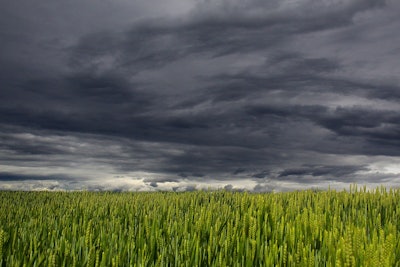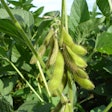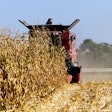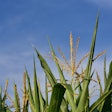
Agricultural operations in Iowa have been severely impacted by recent tornadoes and flooding. The U.S. Department of Agriculture (USDA) announced that technical and financial assistance is available to help farmers and livestock producers recover from these adverse weather events. Impacted producers should contact their local USDA Service Center to report losses and learn more about available programs to assist in their recovery from crop, land, infrastructure, and livestock losses and damages.
USDA Disaster Assistance
The USDA's Livestock Indemnity Program (LIP) provides aid for livestock deaths in excess of normal mortality and for the sale of injured livestock at reduced prices due to eligible adverse weather events. Producers must submit acceptable documentation of death losses or evidence of reduced sales and a notice of loss to the USDA Farm Service Agency (FSA) no later than 60 calendar days following the calendar year in which the loss occurred. For 2024 losses, the deadline is March 3, 2025.
The Emergency Assistance for Livestock, Honeybees, and Farm-Raised Fish Program (ELAP) offers compensation for feed and grazing losses. Producers need to file a notice of loss and payment application to their local FSA office by January 30, 2025, for 2024 losses.
Eligible orchardists and nursery tree growers may receive cost-share assistance through the Tree Assistance Program (TAP) to replant or rehabilitate trees, bushes, or vines. Applications must be filed within 90 days of the disaster event or when the loss becomes apparent.
“Once you are able to evaluate the impact on your operation, be sure to contact your local FSA county office to timely report all crop, livestock, and farm infrastructure damages and losses,” said Matt Russell, State Executive Director for FSA in Iowa.
FSA also provides direct and guaranteed farm loans, including emergency loans for producers in counties with primary or contiguous disaster designations. These loans help producers recover from production and physical losses. On May 24, 2024, FSA Administrator Zach Ducheneaux signed an Administrator’s Physical Loss Notification (APLN) making 29 counties in Iowa eligible for FSA emergency loans due to thunderstorms and tornadoes that occurred from April 26 to April 27, 2024. Contiguous counties in Missouri and Nebraska are also eligible.
The Farm Storage Facility Loan Program (FSFL) offers low-interest financing for building, repairing, or upgrading facilities to store commodities. Producers with damaged equipment or infrastructure funded by FSFL should contact their insurance agent and local USDA Service Center.
Risk Management
Producers with risk protection through Federal Crop Insurance or FSA’s Noninsured Crop Disaster Assistance Program (NAP) should report crop damage to their crop insurance agent or FSA office. Crop insurance requires a notice of loss within 72 hours of damage discovery, followed by a written report within 15 days. For NAP-covered crops, a Notice of Loss (CCC-576) must be filed within 15 days of the loss becoming apparent.
Conservation
The Emergency Conservation Program (ECP) and Emergency Forest Restoration Program (EFRP) assist with restoring fencing, damaged farmland or forests, and debris removal. The Environmental Quality Incentives Program (EQIP) helps plan and implement conservation practices on land impacted by natural disasters.
Assistance for Communities
The Emergency Watershed Protection (EWP) program helps local government sponsors address watershed impairments or hazards. NRCS may cover up to 75% of eligible construction costs, with local sources covering the remainder.
Sponsors must submit a formal request to the NRCS state conservationist within 60 days of the disaster or when access to the sites becomes available. For more information, contact your local NRCS office.


















